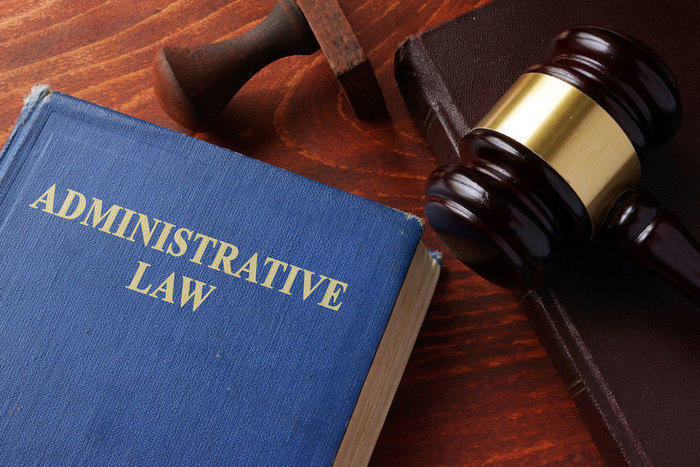Table of Contents
Introduction
Administrative Law is the most outstanding legal development arising from confrontation with the complex problems of socio-economic justice in the welfare state.
The most significant and outstanding phenomenon of the twentieth century has been the establishment of a welfare state in democratic countries. It does not, however, mean that there was no administrative law before the emergence of welfare state. The truth is that administrative law is based on the assumption that there is a politically organised society and from that assumption certain rules relating to the control of administration emerge.
It seeks to ensure social security and social welfare for the common man, regulates private enterprise, exercises control over the production, manufacture and distribution of essential commodities, starts many enterprises, seeks to achieve equality for all and ensure equal pay for equal work. It improves slums and looks after the health and morals of people. It takes all the steps which socio-economic justice demands, All these developments have led to administrative explosion which has widened the scope and ambit of administrative law. The concept of Administrative Law has assumed great importance. It is a branch of law which has witnessed remarkable advances in the welfare state as it developed to control abuse or misuse of governmental power and keep the executives and its various instrumentalities and agencies within the limits of their power.
Meaning & Definition Of Administrative Law
Administrative law is the law relating to the administrative operation of government. It deals with powers and duties of administrative authorities, the procedure followed by them in exercising the powers and discharging the duties and the remedies available to an aggrieved person when his rights are affected by any administrative action. For clarifying the concept of Administrative law a few definitions are being given here as follows-:
Robson
As expressed by this English writer, “Administrative law should be regarded as the law relating to public administration, in the same way as commercial law consists of law relating to commerce or land law relating to land”.
However, he does not differentiate between administrative law and the law of public administration and therefore the definition he attempted is too small and general.
Dicey
“Dicey defines administrative law as denoting that portion of a nation’s legal system which determines the legal status and liabilities of all state officials, which defines the rights and liabilities of private individuals in their dealings with public officials and which specifies the procedure by which those rights and liabilities are enforced.”
Ivor Jennings
According to Sir Ivor Jennings, ” Administrative law is the law relating to the administration. It determines the organisation powers and duties of Administrative authorities.”
Wade and Phillips
“Administrative law is a branch of public law which is concerned with the composition, powers, duties, rights and liabilities of the various organs of government which are engaged in administration.”
K.C. Davis
“Administrative Law is the law concerning the powers and procedures of administrative agencies, including especially the law governing judicial review of administrative action.”
Nature & Scope Of Administrative Law
Pervasive Legal Discipline– Administrative law becomes all pervasive legal discipline. This is so because principles of administrative law emerge and develop whenever and wherever any person becomes the victim of arbitrary exercise of public power.
Law In A Realist’s Sense– “Administrative Law is law but it is not a law in the lawyer’s sense like property law or contract law. It is a law in the realist’s sense of term which includes statute law, administrative rule making. precedents, customs and administrative directions.
Administrative Process– Administrative law is vitally concerned with administrative process. The Administrative process consists of carrying on business of the government regulating the affairs of individuals in the interest of the community etc.
Delegated Legislation– Administration involves the process of making laws when it comes to implementation of Administrative acts. However, in the making of laws the administrative law delegates the power between the various administrative agencies.
Judge Made Law- In India, administrative law is almost a judge made law. Judiciary intercepts the laws according to the needs of the time and issues guidelines for such. It affects administrative law and makes it stronger and more beneficial.
Scope Of administrative laws
Administrative Law as a law is limited to concerning powers and procedures of administrative agencies. It is limited to the powers of adjudication or rule-making power of the authorities. Thus, it is limited to:
- Establishment, organization and powers of various administrative bodies
- Delegated legislation – the Rule-making power of the authorities
- Judicial functions of administrative agencies such as tribunals
- Remedies available such as Writs, Injunction etc.
- Procedural guarantees such as the application of principles of Natural Justice.
- Government liability in torts.
- Public corporations There are several branches.
Sources Of Administrative Law
Constitution– The Constitution is the creator of various administrative bodies and agencies. It gives brief details about the mechanism and the administrative powers granted to various authorities. The Constitution is the supreme law of the land. Any law or act which is inconsistent with it has no force or effect. The effect of this provision is that laws and administrative acts must comply with the Constitution.
Acts and Statutes- Acts and Statutes passed by legislature are important sources of administrative law because they detail the powers, functions and modes of control of several administrative bodies.
Ordinances, Notification and Circulars–
Ordinances are issued by the President (at Union / Federal level) and Governor (at State level) and are valid for a particular period of time. These ordinances give additional powers to administrators in order to meet urgent needs. Administrative directions, notifications and circulars provide additional powers by a higher authority to a lower authority. In some cases, they control the powers.
Judicial Decision– Judicial decisions or judge-made law have been responsible for laying down several new principles related to administrative actions. They increased the accountability of administrative actions and acted as an anchor between the notifications, circulars etc. to be linked and compiled directly or indirectly with the constitutional or statutory provisions.
Principles of Administrative Law
Judicial Review: Administrative law is a generic term, it encompasses all aspects of legal regulations of governmental powers, and judicial review of the administrative actions refers to the jurisdiction of the courts to ensure that governmental decision makers act within law. The exercise of legal power may often involve the exercise of discretion to choose between alternative courses of action or, indeed, whether or not to act at all. The essence of discretion is, however, that it is contained within legal limits.
Principle of legitimate expectation: It was, in fact, for the purpose of restricting the right to be heard that ‘legitimate expectation’ was introduced into the law. It made its first appearance in an English case where alien students of ‘Scientology’ were refused extension of their entry permits as an act of policy by the Home Secretary, who had announced that no discretionary benefits would be granted to this sect. They had no legitimate expectation of extension beyond the permitted time and so no right to a hearing, though revocation of their permits within that time would have been contrary to legitimate expectation.
Principle Of Reasonableness: The concept of discretionary decision making is one of the main issues of administrative law. The term discretion has been used to indicate administration’s choice to achieve its goal without arbitrariness since it achieves its goals by involving all citizens. Wielding this power, it can make choices from a range of solutions, but is bound by the principle of reasonableness.
Principle of good governance: Good governance is about the processes for making and implementing decisions. It’s not about making ‘correct’ decisions, but about the best possible process for making those decisions.
Principle of natural justice: “Not only should justice be done, but it should be seen to be done” It is not a written law but has been developed by courts in the process of their judicial decisions. It seems to be as old as the system of dispensation of justice itself. It has by now assumed the importance of being, so to say, “an essential inbuilt component” of the mechanism, through which decision making process passes, in matters touching the rights and liberty of the people.
The principle of rule of law: “Where laws do not rule, there is no constitution.” The notion of the rule of law can be traced back to at least the time of Aristotle who observed that given the choice between a king who ruled by discretion and a king who ruled by law, the latter was clearly superior to the former. The essence of the rule of law is that of the sovereignty or supremacy of law over man and the government. The rule of law insists that every person- irrespective of rank and status in society- be subject to the law.
Conclusion
Administrative law is the law governing the Executive, to regulate its functioning and protect the common citizenry from any abuse of power exercised by the Executive or any of its instrumentalities. It is a new branch of law which has evolved with time and shall continue to evolve as per the changing needs of the society. The aim of administrative law is not to take away the discretionary powers of the Executive but to bring them in consonance with the ‘Rule of law’.



